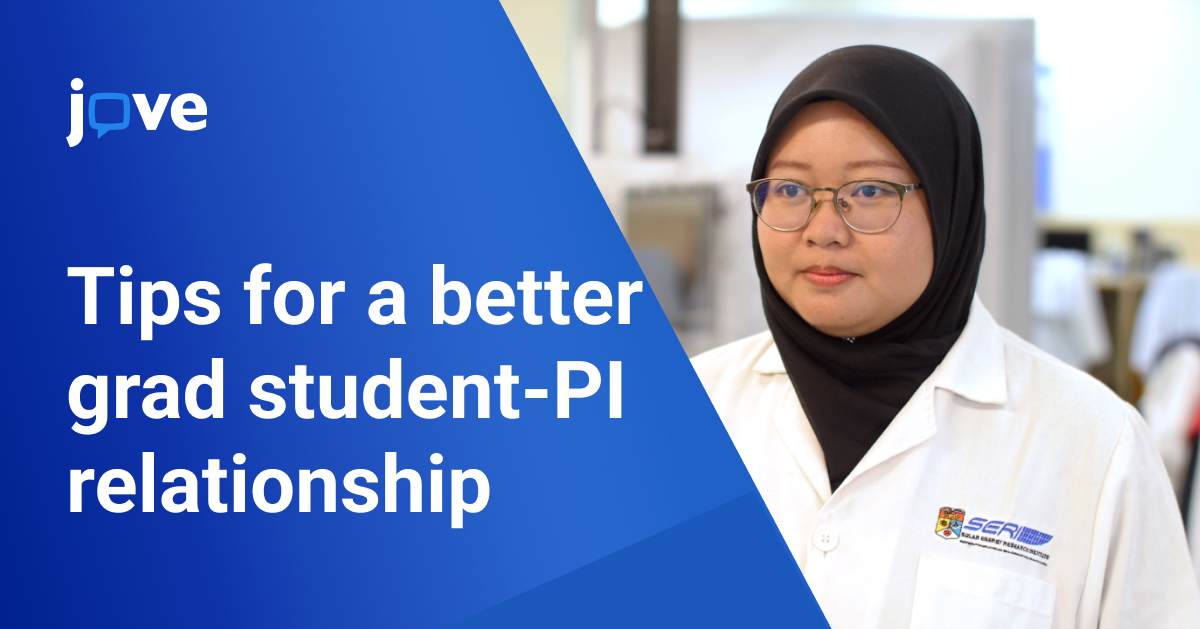How to have a good student-PI Relationship?
“It’s important that you and your PI (principal investigator) get along, but it’s more important that you and your PI be productive together.”
This useful piece of advice was given to me by a postdoc, during my Ph.D. For a grad student, a PI is many things: a teacher, a mentor, a role model, and a critic. For a PI, a grad student represents a student, an employee, a mentee and a fellow researcher. With so many expectations, the PI-grad student relationship can be a complicated one.
5 Tips for a better grad student-PI relationship
Having navigated these somewhat murky waters, I hope that these tips help current grad students develop a more productive working relationship with their PIs.
- Choose Wisely: One of the most important decisions during grad school is choosing a thesis lab and PI. While making this decision, keep in mind how you and your PI work and communicate. Recognizing each other’s working styles early on and figuring out if those styles are compatible, will help you develop a more productive relationship.
- Improve productivity: Once you have chosen your thesis lab, the next step is making sure you are productive in the lab. Every PI wants productive grad students. Spending too much time on standardizations and optimizations derails timelines and hampers lab productivity. Making sure that you are organized and managing your time efficiently in the lab, will go a long way in improving your relationship with your PI. Using video-publications to learn techniques saves time and improves lab productivity. Work hard and work smart!
- Communicate effectively: Communication is key! It's a cliche, but it’s true. It is important for you to recognize your PI’s communication style and adapt to it. For example, some PIs prefer an open door policy and some prefer appointments. Figure out which policy your PI prefers and follow it. Similarly, make it simple for your PI to communicate with you. Be straightforward about your needs and expectations.
- Brainstorm and troubleshoot: Your project’s success is important to both you and your PI. Keeping your PI in the loop for both successes and failures is important. Try to troubleshoot failed experiments together. The reason you joined the lab was to be guided by one of the leading minds in the field, so exploit that opportunity. Brainstorming with your PI helps them keep abreast of your progress and roadblocks. This also helps them appreciate your research and your critical thinking abilities.
- Pick your battles: While you and your PI might share the perfect work relationship, you will not always see eye to eye. It is common to have different opinions on the direction projects should take, the next best experiment, writing the manuscript etc. How these differences are resolved to define your relationship more than those pleasant beers shared at TGIF sessions. Think hard about the battles you pick. When you do pick a battle to fight, make sure you present your case with respect, tact, and facts.
Conclusion
In conclusion, building a strong, productive relationship with your PI requires careful selection, effective communication, mutual troubleshooting, and thoughtful decision-making regarding conflicts. By following these tips, you can navigate the complexities of the PI-student dynamic more successfully. To further enhance your research skills and knowledge, consider utilizing resources like JoVE.com, which offers a wealth of video-publications and practical tutorials to help you master various laboratory techniques and methodologies, ultimately contributing to a more efficient and productive lab experience.
Every grad student will have a different story and a different relationship with their PI. During your PhD, you will learn and grow a lot and your PI plays a big role in this professional development. Learning from your PI’s scientific expertise and critical thinking skills, will give you the scientific foundation that you came to grad school for.
